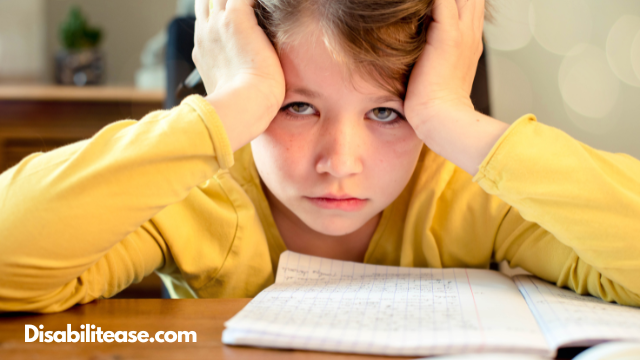Early diagnosis of dyslexia is crucial to preventing difficulties and failure in reading before the issues worsen. Children who have risks of dyslexia are identified during the initial two years of schooling, allowing for prompt intervention.

According to research, early intervention is most beneficial for preventing damage to a student’s self-esteem and motivation.
Here is a related article that might interest you on Can Dyslexia Happen With Numbers?
The optimal time to screen is during the first year of school at age 5, even before they can read. However, dyslexia screening is possible to be done even during the pre-kindergarten period.
Table of Contents
At What Age Can You Test For Dyslexia? What About Early Childhood
The first dyslexia symptoms start to show in children around 1 to 2 years old when they begin learning to speak and make sounds.
The disorder is more likely to be seen among children who can’t tell their first words until they are 15 months old or their first sentences until they are two years old.
Nevertheless, not everyone with dyslexia also has speech issues in their childhood, and not everyone with dyslexia also has delayed speech.
A speech delay only signals for parents to focus on their child’s language acquisition.
Children from families with a history of reading issues need to be tested thoroughly for dyslexia.
Before the age of five, children may experience the following indicators of dyslexia:
- Having trouble memorizing the alphabet’s letter names and learning the words of popular nursery rhymes
- Not being able to distinguish the letters in their name
- Mispronouncing phrases
- Keep talking in baby language
- Failing to recognize rhymes
Kindergarten Period

The signs of dyslexia start to show until a child ages about 5 to 6, when they begin to learn reading. In kindergarten, teachers can see children who may have reading difficulties.
A doctor would collaborate with you to assess any symptoms in your child, as there is no established test for dyslexia.
These symptoms could include:
- Not understanding how words are broken down into sounds
- Making reading mistakes unrelated to the sound of the letters being read
- Having a family history of reading difficulties.
- Crying about how difficult reading is and refusing to attend school
- Exhibiting speech and pronunciation issues
- Being unable to link sounds with letters
- Having difficulty sounding out easy words like car or bat
The main areas of concentration for early intervention programs are vocabulary, reading methods, and awareness of phonological skills.
Pre-teen Age

Usually, teachers lack the training necessary to identify dyslexia. Children who are bright and actively participate in class sometimes fall through the gaps since they are skilled at concealing their reading difficulties.
A child might have slipped behind in reading, spelling, and writing by the time they enter middle school.
If a child is extremely slow in learning how to read or reads very carefully and slowly, it might be an indication of dyslexia.
A few other symptoms of this are as follows:
- Stumbling over new words and having trouble pronouncing them
- Hating to read aloud using nebulous and imprecise terminology, such as “things.”
- Avoiding answering questions and coming up with words
- Employing a lot of “um” in speech
- Pronouncing long or difficult words incorrectly
- Being confused by similar-sounding words or phrases
- Having untidy handwriting
Who Needs To Be Examined?
A skilled teacher can tell which students are having trouble keeping up immediately. It is important to regularly screen or assess these kids for dyslexia.
Given that dyslexia is inherited, seeking a close relative who has dyslexia or exhibits the usual spelling issues associated with dyslexia must be sufficient justification for screening or evaluating a kid.
A history of delayed speech and recurrent ear infections as a newborn are other warning flags that demand examination. However, it’s crucial to remember that not all dyslexic people have speech problems.
Why Is Screening Important?
Children that require specialized intervention would be found via early screening. The findings of a screener may yield important data that would prove helpful later on during a complete dyslexia assessment and can be utilized to organize treatment.
Why Is It Necessary To Formally Assess Or Monitor Student Progress?
The International Dyslexia Association (IDA) lists three benefits of a formal assessment.
- It offers a qualified diagnosis that would be more challenging for a school to contest.
- It will be beneficial for a specialized teacher while preparing an intervention program.
- It gives the historical information required for examination adjustments.
Conclusion
It is important to start evaluating the behaviour of your child from the early years. So it becomes important for parents to understand if or not the child is dyslexic.

Hi, my name is Eddie, I am a professional trainer specializing in the elderly population and I’m also a website designer. I love training in the gym, going to the beach, traveling, and having good food.
I combined my love for sport and website designing to make “DisabilitEase” whose purpose is to help elderly and disabled people live a more full and active life, have more fun, and enjoy their unique journey despite any disability.



